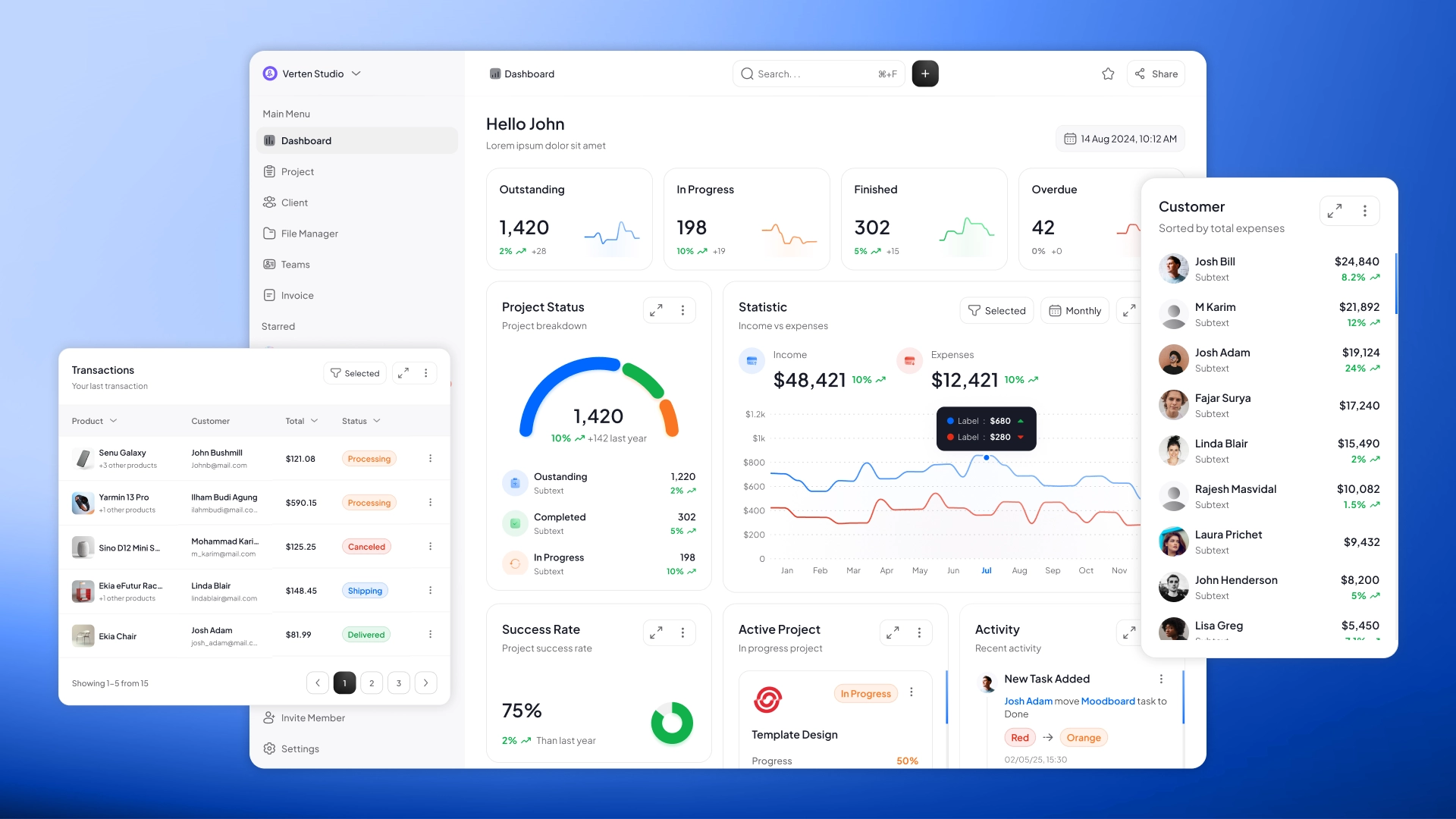
Business process automation has become one of the key conditions for effective company management. With a custom CRM system, you can use data to achieve strategic goals, streamline customer service and internal communication, increase sales and process transparency, improve service quality and reduce the impact of the human factor. This is the best investment in the intellectual foundation of your business.
Companies that have already implemented CRM have a competitive advantage due to operational access to data, process optimization and deep analytics. AVADA MEDIA provides professional services for implementing CRM systems, helping businesses reach a new level of efficiency and control.
Without structured management of sales, customer data and business processes, a company faces chaos in communications, lost applications and opportunities. A CRM system for business is a powerful multifunctional tool that takes on a number of strategically important tasks.
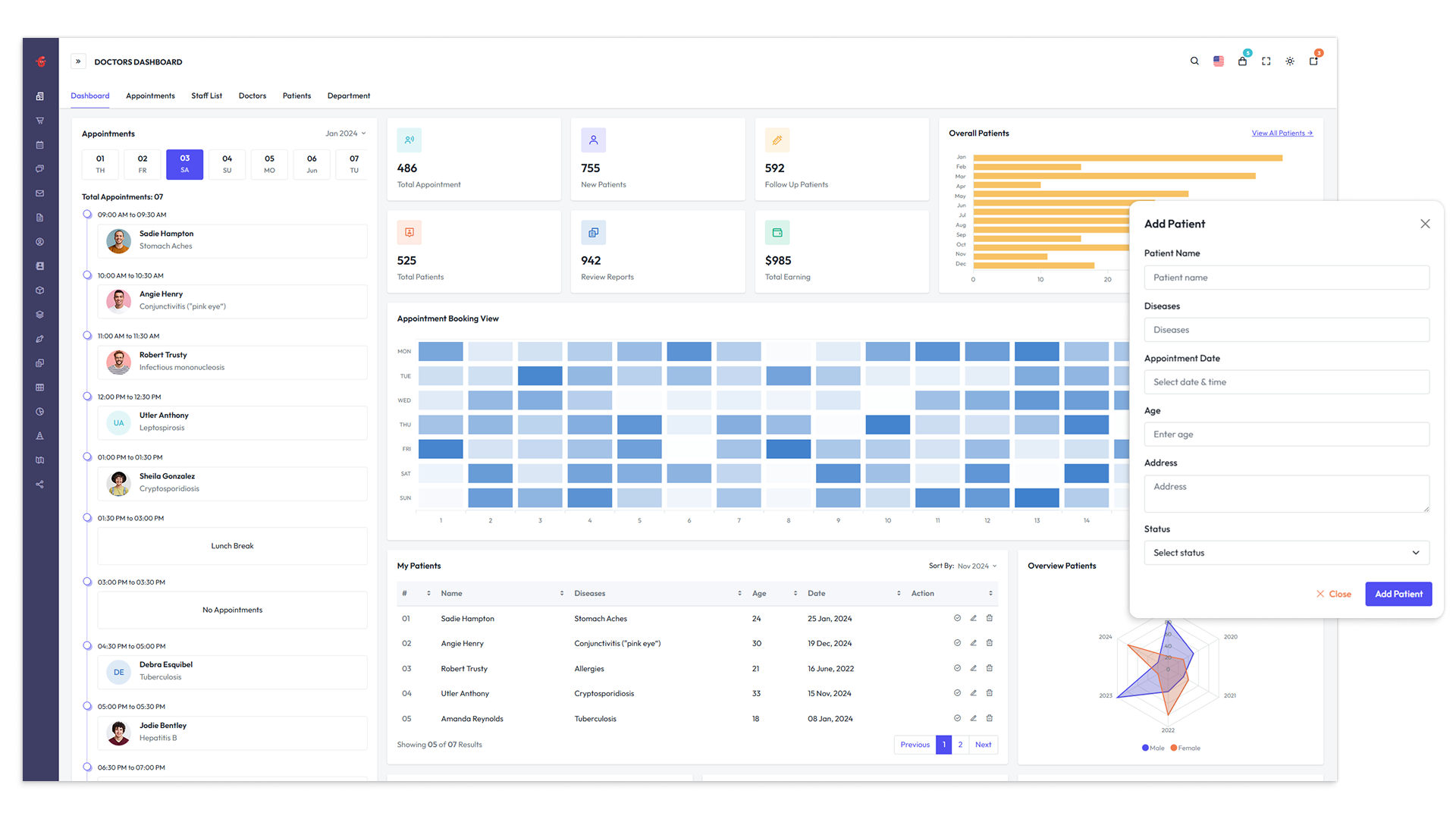
CRM systems differ in their architecture, purpose, and other criteria. To implement a software solution that will really strengthen your business, it is important to understand what types of CRM exist and how they differ from each other.
CRM systems are divided into the following types by purpose:
By the degree of customization, they are distinguished:
According to the CRM system deployment model, there are:
By scale and industry, CRM can be implemented:
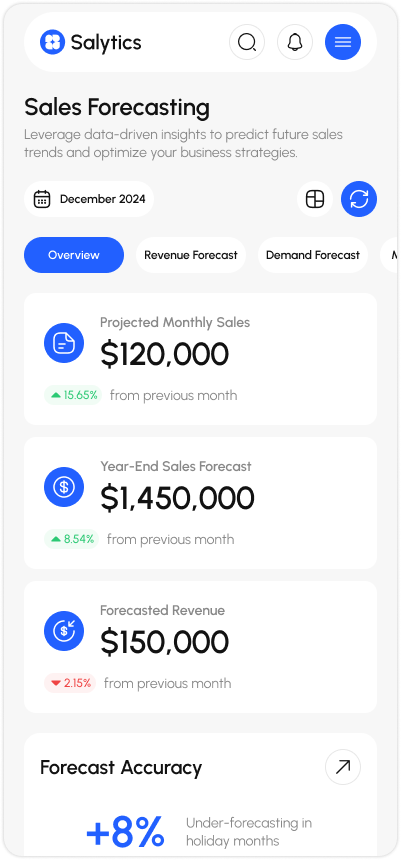
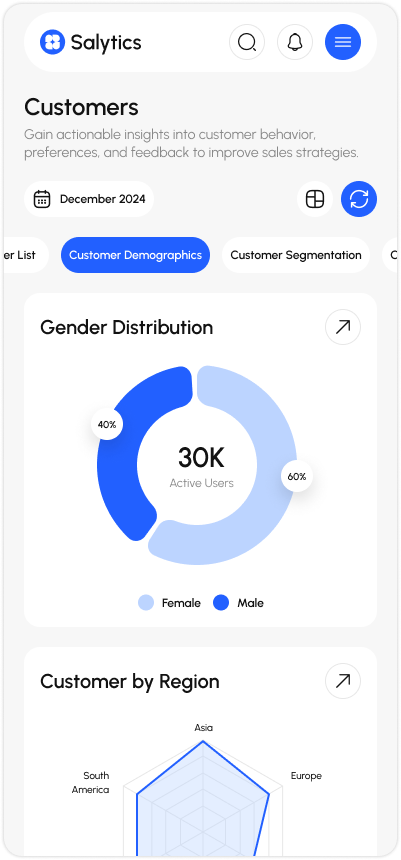
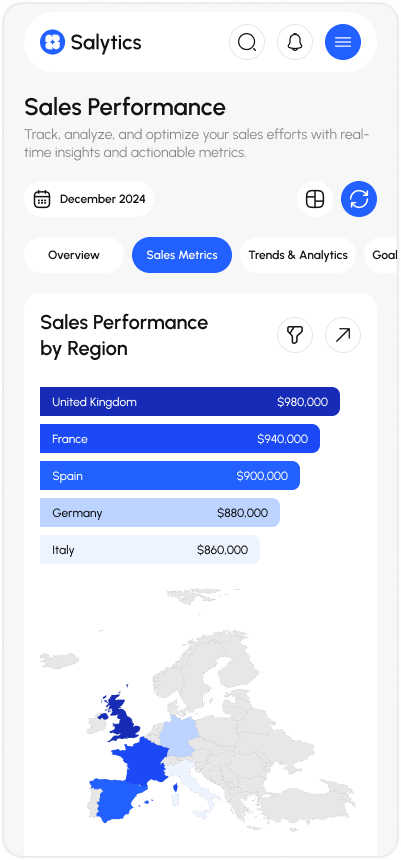
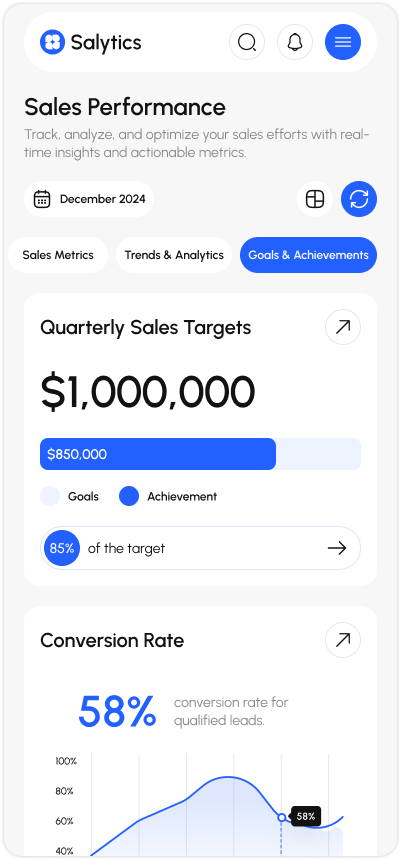
Screens of mobile version of CRM system
Developing and implementing a CRM system is a step towards scaling and digital transformation that a business needs, regardless of its niche and size. With AVADA MEDIA, it is possible to implement CRM for any business direction and scale – from startups and local companies to large international corporations with a branched structure.
Today, automated management systems are relevant for almost all areas of business.
In the field of marketing, CRM helps to manage projects, segment customers, automate interaction with leads, control the sales funnel and analyze the effectiveness of advertising campaigns. For a marketing management system, integrations with advertising platforms Facebook Ads, Google Ads, TikTok, email services and IP telephony are mandatory.
CRM for e-commerce can include a pool of capabilities for online trading of any scale and format: order management, customers, deliveries, warehouse and logistics in a single interface. Automatic synchronization with marketplaces, generation of documents and reports, integration with payment systems – one program can have everything for a scalable online business (online stores, dropshippers, marketplaces).
Integration with IP telephony, script automation, conversation logging, operator efficiency analytics.
CRM for call centers and support supports integration with IP telephony, automatically displays the client’s card on the screen during a call and records the entire communication history. Call scripts and response templates help operators adhere to service standards and work faster. The system records conversations, conducts analytics on employee efficiency and allows you to control SLA. All requests – by phone, email, in chats and instant messengers – are processed in a single window.
CRM for the agricultural complex can take on such functions as control and accounting of agricultural machinery, sowing and harvesting schedules, tracking purchases and logistics, yield analytics, work with counterparties.
CRM systems for the automotive business (car washes, car dealerships, auto parts stores, service stations, auto broker services, car auction redemption, etc.) automate customer registration, maintenance history, car valuation, spare parts inventory management, and document management. And custom notifications and analytics make it possible to accurately plan resource loading and improve customer service.
Patient registration, electronic patient records, appointment templates, automatic notifications, medication management and interaction with laboratories – all these CRM functions for clinics and medical centers help staff automate routine and focus on patients.
CRM implementation for insurance companies and financial institutions helps increase sales and simplify management, thanks to calculators, accounting of contracts and client histories. The program also provides financial companies with customer scoring, electronic document management, personal data protection, flexible management of contracts and agreements.
In the real estate sector, the program helps manage objects and agreements, as well as relationships with investors, tenants, developers and contractors. In CRM, you can track the status of each object, control deadlines, budgets, automate document flow and integrate with MLS platforms or classifieds. Developers can conveniently manage projects by stages, while agencies can manage leads, impressions, and contracts.
CRM for educational institutions helps scale online schools and private learning centers while maintaining high quality of service. With this program, you can automate course registration, class reminders, manage curricula, schedules, teachers, students, payments, and communications.
Implementing CRM for delivery services allows you to track orders, manage routes, couriers, schedules, automate document flow, create custom messages, and calculate cost. Integration with GPS and warehouse modules is also available.
CRM for production provides real-time control of the production cycle, logistics, maintenance, and customer orders. The program integrates with ERP systems, equipment, and warehouse solutions.
The implementation of CRM in the restaurant and hotel business makes it possible to automate and visualize reservations, loyalty programs, guest service, internal processes, personnel management, kitchen and deliveries. CRM reduces the burden on administrative staff and improves the quality of service.
We know that there are no universal solutions, so we develop a unique, effective and flexible management system for your individual business processes and goals, in whatever field you work.
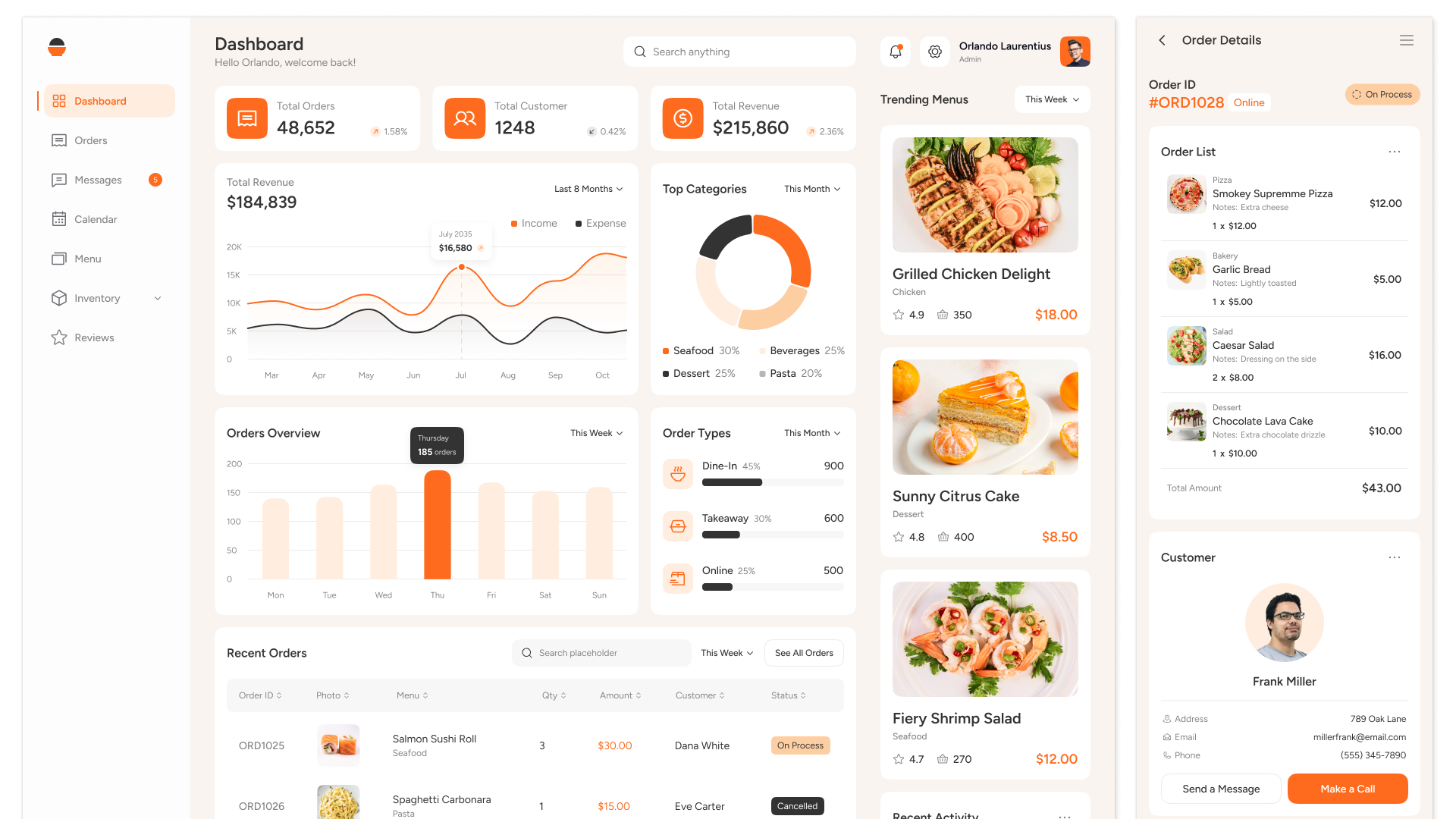
Choosing between a ready-made CRM solution and custom development is a strategic decision that affects not only the speed of launch, but also the effectiveness of the entire business architecture in the future.
Ready-made solutions or so-called “boxed” systems are available immediately after purchase or subscription. This is their main advantage – speed of implementation and low entry threshold. Such CRMs are suitable for small teams with typical processes: a basic sales funnel, simple customer segmentation, template email mailing. And then be prepared for serious limitations.
Limited customization
Most boxed CRMs are limited to basic functionality. Attempts to “tighten” the system to your needs often run into technical limitations or expensive plugins.
Unnecessary features
Off-the-shelf solutions are often overloaded with universal modules that are not used, but complicate navigation, distract employees and increase the cost of the program.
Scalability difficulties
As the business develops and grows, standard CRMs may not cope with new tasks. At the same time, transferring data and processes to another system is a time-consuming and expensive step.
Regular payments
Most SaaS-CRMs work on a subscription basis, the price of which also depends on the number of users.
Limited security control
When using cloud solutions, your data is stored on third-party servers, which is a potential risk for confidential information, especially in certain areas.
After implementing a ready-made CRM, companies often face the fact that the system “does not pull” the real load or hinders growth. This leads to additional costs for refinement or migration.
Custom CRM is a management system designed for specific tasks and processes of the company. It is an investment in manageability, scalability and sustainability of the business. Developing your own management system provides a number of advantages:
Uniqueness and customization
Custom CRM is fully adapted to the specifics of your company – structure, internal regulations, sales cycle, type of customers and format of interaction with them. You do not adapt to the system – it is built around your business.
Flexibility and scalability
Custom CRM is created taking into account future internal and external changes. If necessary, you can easily implement new functions, automate additional processes, add branches and user roles, and integrate with other services.
Unique interface
The user interface is developed in such a way as to be as convenient as possible for specific groups of users. If the team quickly learns and easily uses the program, productivity and motivation increase.
Deep integration with other services
Development from scratch allows you to flexibly integrate with any third-party services, ERP, IP telephony, marketing platforms, warehouse and accounting systems – without restrictions and unnecessary crutches.
Data security and control
Only you own the entire system and control the storage and use of your data – customer databases, analytics and internal processes. Unlike cloud boxed solutions, you do not depend on SaaS platform providers and their data processing policies.
Support and development on your terms
You determine when and how to update the system, add modules or implement improvements. Without having to wait for releases from the vendor or pay for unnecessary updates.
No ongoing subscription payments
Unlike ready-made SaaS CRMs that require a monthly payment for each user, a custom system is developed once, and you become its owner. For long-term use in companies with a large staff, this is the right solution.
Ready-made solutions are sometimes appropriate for microbusinesses or temporary tasks, but these are constant costs. And developing your own management system is an investment in efficiency, control and scaling your business.
Developing an individual CRM requires time and more costs at the start, but at the same time it gives a lot of competitive advantages and allows the business to work at its own pace, without restrictions. If your company strives for growth, has specific processes, requires deep customization – a more rational and profitable solution in the long term will be an individual CRM.
Custom CRM development
CRM implementation is not just about installing a program, but a complex step-by-step process. To make the system really work for you, entrust its installation to professionals. Let’s take a closer look at the stages.
Implementing and customizing a CRM system requires a professional approach, consistency, and the use of modern technologies and tools.
The team of specialists consists of:
To implement a CRM system implementation project, we use tools for
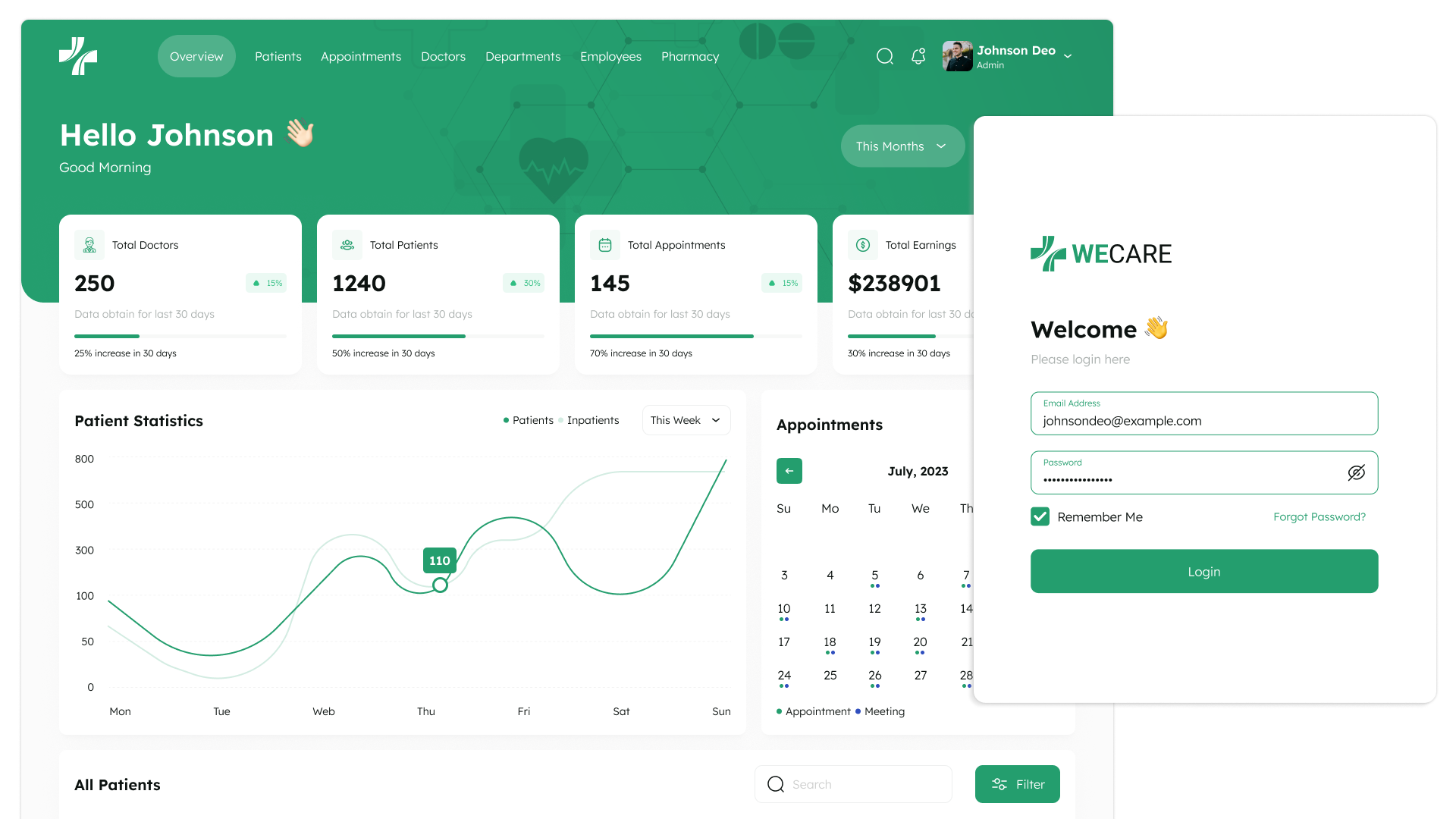
Implementing a CRM system is a complex technical process and a strategic step that affects all aspects of a company’s operations: from sales to customer service and analytics. The success of this process depends on a number of factors that need to be taken into account at the planning stage.
In-depth analysis of business processes
To apply the management system effectively, you need to understand how the company’s internal processes are organized: who is involved in sales, what path the customer goes through, and how departments interact. Only based on this analysis can a logical and effective system architecture be built. Therefore, the development and implementation of CPM should always start with analysis.
Clearly set goals and objectives
CRM should solve specific business problems: increase the speed of processing applications, reduce manual labor, improve employee control, etc. Clear KPIs allow you to evaluate performance and adjust the system in the course of development.
Involvement of management and staff
Successful implementation is impossible without the participation of top management and key employees. It is important that CRM is perceived as a development tool, not an additional burden.
Full adaptation to the specifics of the business
Even a ready-made platform must be adapted to the real needs of a particular company. One-size-fits-all solutions rarely bring maximum benefit without modifications and customization. If you decide to implement an off-the-shelf program, evaluate all the limitations and rethink your decision.
User training
Even a functional management system will not bring the desired result if employees do not know how to use it. Well-organized training and internal documentation are essential elements of implementation.
Phased implementation
A high-quality CRM system cannot be implemented in one click. A gradual launch with testing in a limited area allows you to identify and eliminate errors before scaling to the entire business.
Technical support
Even after the launch, the CRM system requires support, improvements, and scaling. Having an experienced team that is ready to support the project in the long term is the key to stable operation and increased efficiency. After implementing the CRM system, we will not leave you alone with it, but will continue to develop your software as needed, maintain its stability and security.
The success of automation largely depends on the team that implements the CRM system. A professional contractor not only installs the platform, but also adapts it to your company’s business processes as much as possible, transfers data from existing systems, automates key stages, trains staff, and ensures the system’s stable operation for years to come.
What to look for when choosing a contractor:
AVADA MEDIA offers the development and implementation of CRM systems for any format, task, and business scale. We work with both custom development and adaptation of existing platforms, including finalizing the functionality for your goals. With us, you build the foundation for digital business management.
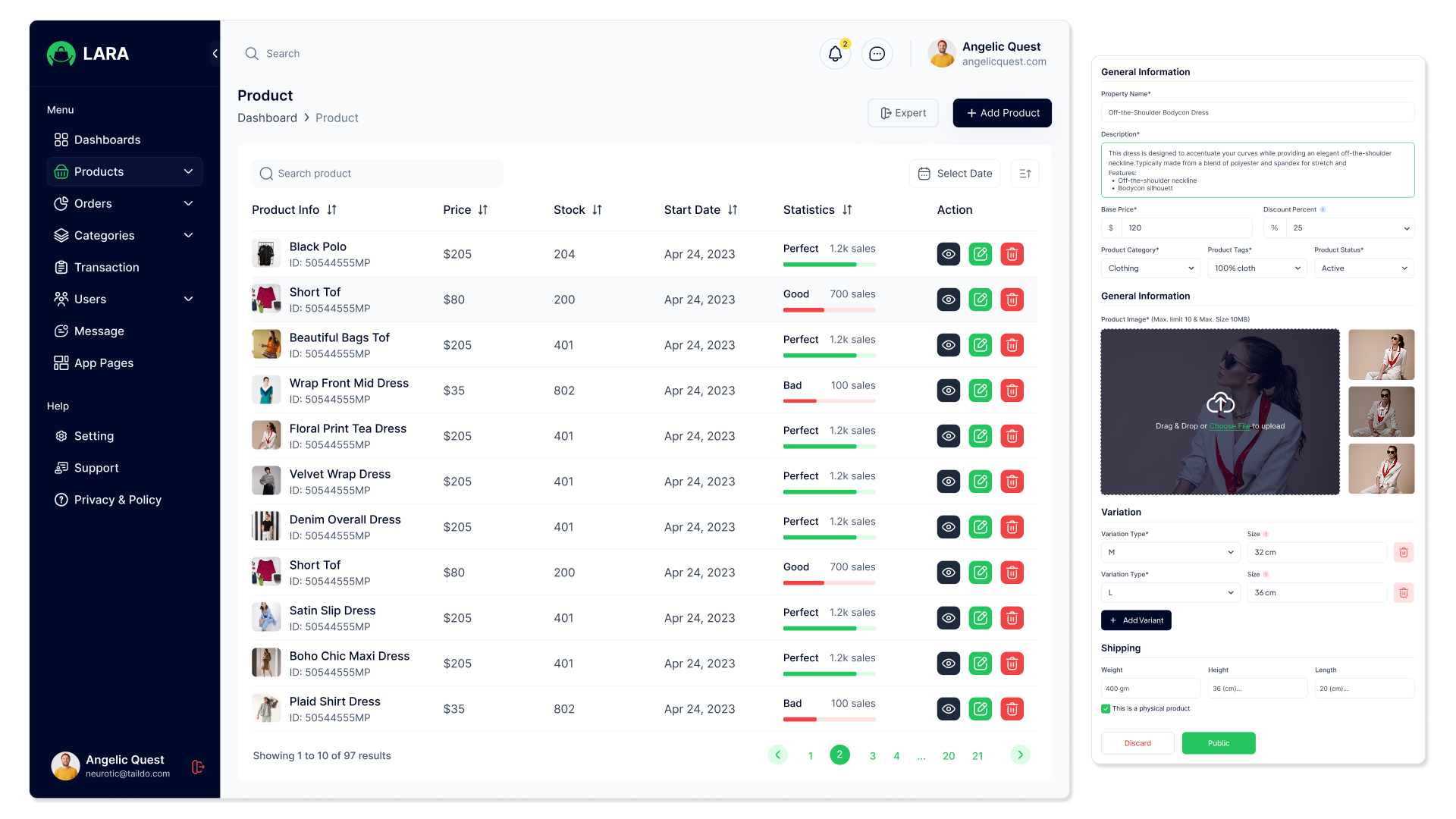
Many companies postpone CRM implementation until better times, not realizing that they are already operating at the limit of efficiency and losing customers, time, and profit. Let’s look at the key signals that indicate the need for automation.
The following difficulties may arise when implementing CRM:
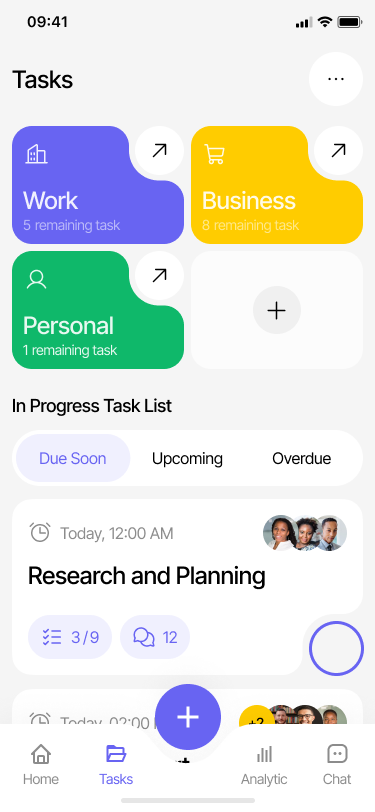
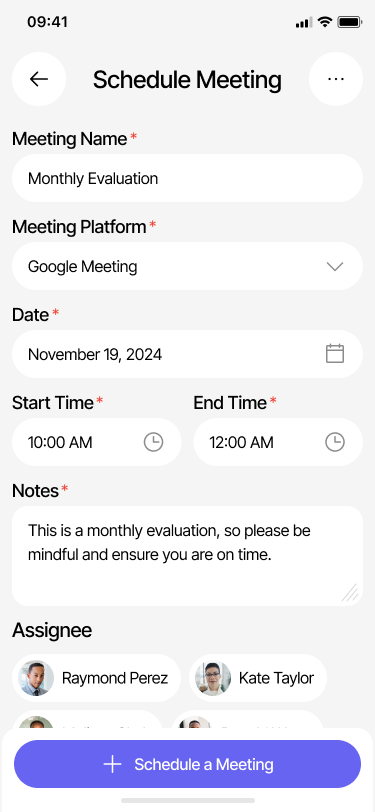
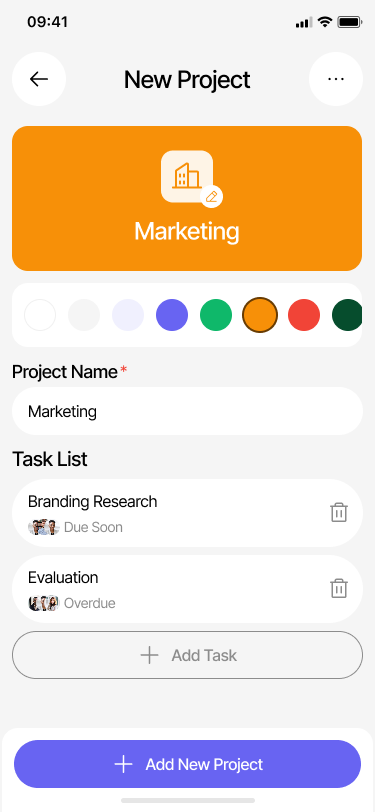
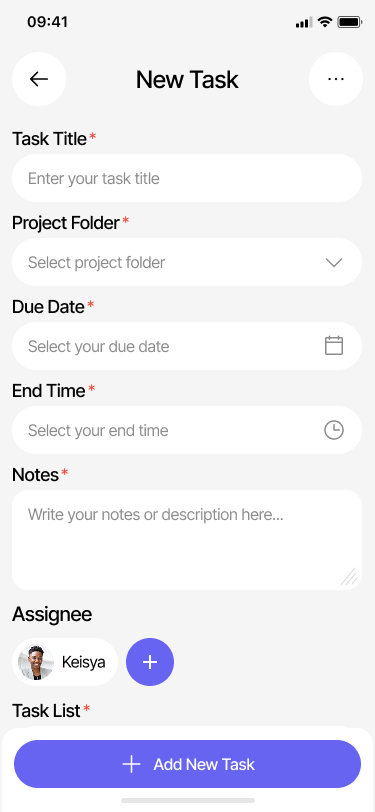
Screens of mobile version of CRM system
Each of our projects is a unique CRM system, the price of which depends on the specifics of the business, the amount of work, the chosen platform, the complexity of customization, and other nuances. The main factors that shape the cost of implementing CRM systems:
CRM implementation is a service that requires a modern and professional approach. By choosing AVADA MEDIA, you get not just an automation tool, but a full-fledged solution for growth and development, adapted to your business. Our key advantages:
You can order CRM, implementation, and maintenance of the program from us. We help companies build efficient processes, improve the quality of customer service, and increase profits using modern technologies.
Is it possible to implement a simple CRM without complex settings?
There are ready-made CPM systems for small businesses that require minimal adaptation, but they are suitable only for basic business needs. For specific requirements, more complex customization will be required.
How long does the CRM implementation process take?
It depends on the complexity of the project, but usually the process takes from several weeks to several months, including employee training and system testing.
What is the impetus for implementing a CRM system?
The main factors are lost requests, unstructured data, complexity of customer management and low work efficiency. Implementation of a customer relationship management system helps to automate processes and improve service.
How does CRM differ from project management systems (Trello, Jira or Asana)?
A CRM system focuses on customers, sales and service, while project management tools focus on tasks and teamwork. However, custom CRMs can also include a project management module, combining both logics in one solution.
How much do CRM implementation services cost?
The cost of implementing a CRM depends on the complexity of the platform, the number of users, and customization. Basic solutions with a minimum set of functions can be inexpensive, but will require significant costs in the future.
What to do if a CPM system is not suitable for a business?
Implementation of a business process management system does not always meet expectations. If you choose template or universal solutions, sooner or later you will have to refine the functionality or switch to another platform. It is better to immediately order an individual development of a CRM system; the cost of implementation will be higher, but the program will no longer require global costs and will definitely suit the business.
What are the risks when transferring data from an old system or Excel to a new CRM?
Data loss, duplicates, and format inconsistencies are possible. Therefore, the migration stage with field mapping, data cleaning and verification is important. We always include this stage in the project.
How does a CRM system work?
CRM consists of modules, each of which is responsible for a specific function: contact management, sales funnels, tasks, communications, reports, automation, etc. The architecture can be modular or monolithic, and the data is centrally stored in the database and accessible through the interface in the form of panels, cards and filters.
What trends in the development of CRM systems should be taken into account?
Key trends are the growth of automation, artificial intelligence, personalization of interaction with clients, individual solutions and mobile CRM.
How to choose a contractor for the implementation of a CRM system?
Evaluate the company’s experience, study cases, technological expertise, post-implementation support and the possibility of customizing the system. Before ordering the implementation of a CRM system – the cost, terms and requirements are described in the specification.
Our works
Contact the experts Have a question?
Developed by AVADA-MEDIA™
The user, filling out an application on the website https://avada-media.ua/ (hereinafter referred to as the Site), agrees to the terms of this Consent for the processing of personal data (hereinafter referred to as the Consent) in accordance with the Law of Ukraine “On the collection of personal data”. Acceptance of the offer of the Consent is the sending of an application from the Site or an order from the Operator by telephone of the Site.
The user gives his consent to the processing of his personal data with the following conditions:
1. This Consent is given to the processing of personal data both without and using automation tools.
2. Consent applies to the following information: name, phone, email.
3. Consent to the processing of personal data is given in order to provide the User with an answer to the application, further conclude and fulfill obligations under the contracts, provide customer support, inform about services that, in the opinion of the Operator, may be of interest to the User, conduct surveys and market research.
4. The User grants the Operator the right to carry out the following actions (operations) with personal data: collection, recording, systematization, accumulation, storage, clarification (updating, changing), use, depersonalization, blocking, deletion and destruction, transfer to third parties, with the consent of the subject of personal data and compliance with measures to protect personal data from unauthorized access.
5. Personal data is processed by the Operator until all necessary procedures are completed. Also, processing can be stopped at the request of the User by e-mail: info@avada-media.com.ua
6. The User confirms that by giving Consent, he acts freely, by his will and in his interest.
7. This Consent is valid indefinitely until the termination of the processing of personal data for the reasons specified in clause 5 of this document.
Send CV
Contact us in any convenient way for you:
+ 38 (097) 036 29 32